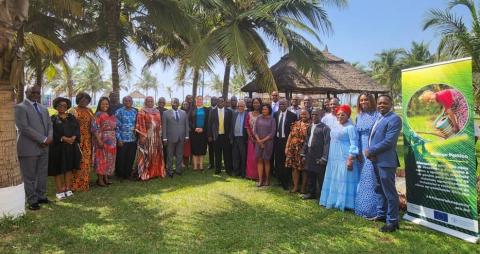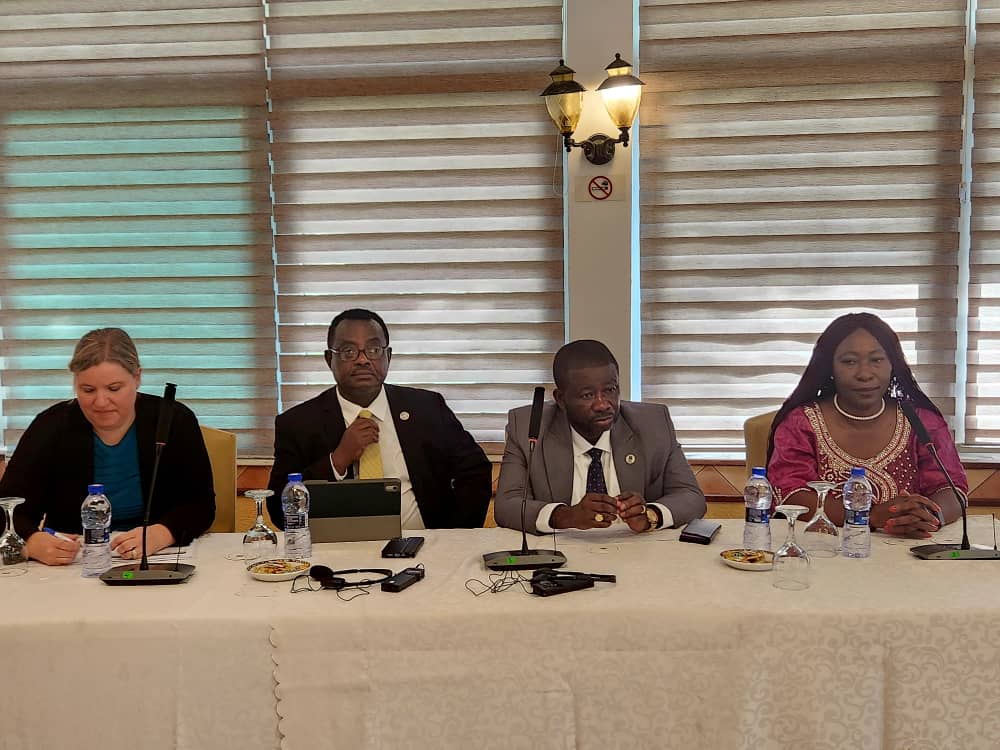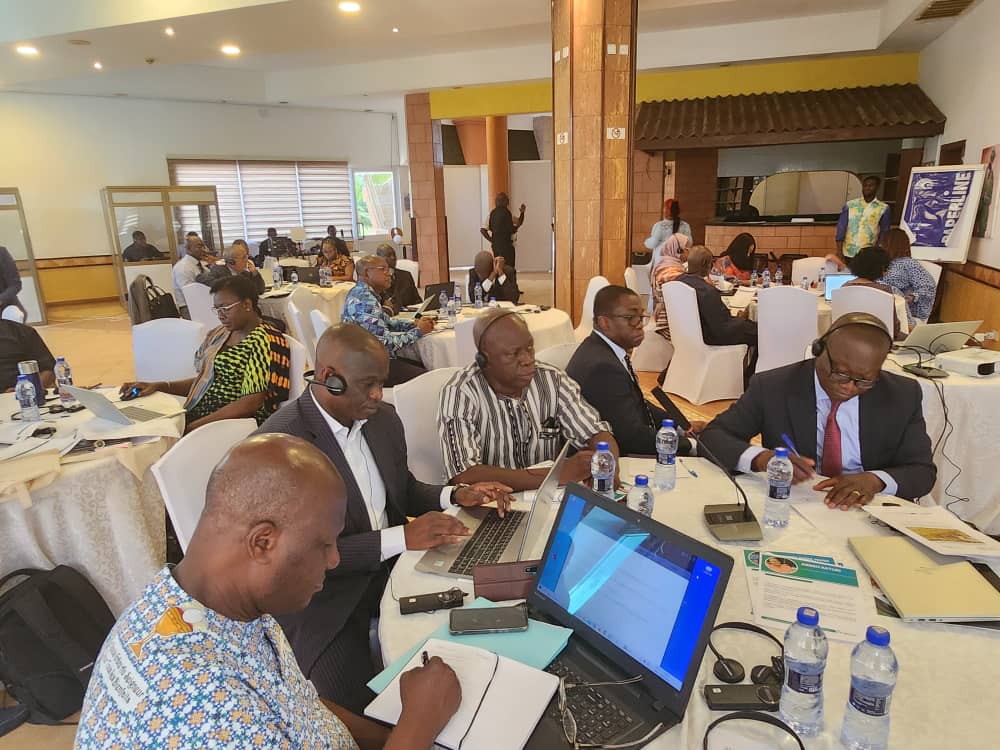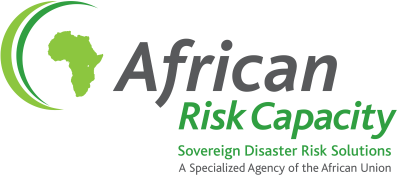
++Joint press release++
Regional technical experts advocate for women’s engagement in climate-resilient agrifood systems in Africa
African Risk Capacity and FAO highlight best practices to empower women in disaster risk reduction
24 November 2023, Accra – Regional technical experts called for gender-responsive funding and policies, women’s leadership in climate action, and the collection and use of sex-disaggregated data at a policy dialogue hosted by the African Risk Capacity (ARC) and the Food and Agriculture Organization of the United Nations (FAO). Ahead of the United Nations Climate Change Conference COP28, FAO and ARC gathered experts, policymakers and decision-makers from west and central Africa to discuss the integration of gender perspectives in disaster-risk management to enhance the resilience of agrifood systems against the backdrop of climate change.
In the last decade, climate and weather-related disasters have risen disproportionately in sub-Saharan Africa, making it one of the most vulnerable regions to climate change. The impacts on food security and levels of poverty are expected to be significant where the majority of the population still relies on rain-fed agriculture and natural resources for their livelihoods. The effects of climate change and disasters are shaped by intersecting vulnerabilities, including gender. Women are disproportionately affected by such crises. Despite playing key roles in natural resource management, they still face immense barriers in access to and control over such resources, as well as services, technology, information and decision-making. These barriers are rooted in discriminatory norms that perpetuate their vulnerability to weather-related disasters.
FAO and ARC have an agreement to collaborate for the integration of gender dimensions in climate action and disaster risk management and reduction in sub-Saharan Africa.

“Our collaboration with FAO underscores a shared vision for a resilient Africa. The focus on integrating gender-responsive measures in disaster risk management is not just critical, it's an urgent imperative in the face of climate change. The outcomes of this series are a cornerstone for our advocacy at COP28 for a stronger and more sustainable future of Africa,” said Ibrahima Cheikh Diong, UN Assistant Secretary General, and ARC Group Director General.
“Building women’s resilience and promoting gender-responsive interventions is critical to ensuring inclusive and socially just climate action and disaster risk reduction and achieving Zero Hunger. While there remains a lot of work to do to promote a truly transformative agenda that places women as equal partners in climate action and disaster risk management, we believe that our ongoing partnership is a big step in the right direction,” added Abebe Haile-Gabriel, FAO Assistant Director-General and Regional Representative for Africa.
Moving forward: turning words into actions
Key topics addressed at the dialogue included the impact of climate change and disasters on agrifood systems, with a special focus on gender-sensitive approaches; strategies for strengthening policy measures to improve gender equality in disaster preparedness and response; and innovative approaches to build resilience against health emergencies and extreme weather events.
Key recommendations will be raised at COP28 in an effort to influence regional and continental decision-makers present at the conference. These include, for instance, the importance of tackling the root causes of gender inequalities by shifting social norms which undermine the engagement of women in disaster preparedness and management activities at community and policy level.
Building capacities and raising awareness of gender issues among men and women in governmental and grassroots levels is crucial for this to be achieved. Better informed decision-makers will be able to develop gender-responsive policies and budgets, and the same applies to community-level male decision-makers who are crucial allies for women and girls before, during, and after crises and shocks.
Finally, the generation and use of data disaggregated by sex must be prioritized. With tangible evidence, international organizations, government bodies, and civil society can better advocate for the recommendations above. Investing time, attention and funds in gender equality is not only the right thing to do for the well-being of women and girls – it is also the best and quickest path towards resilient agrifood systems for all.

ENDS
Contacts:
FAO
Zoie Jones
Regional Communications Officer
ARC Group
Michèle Diane Karambiri
Head of Communication
Related links:





